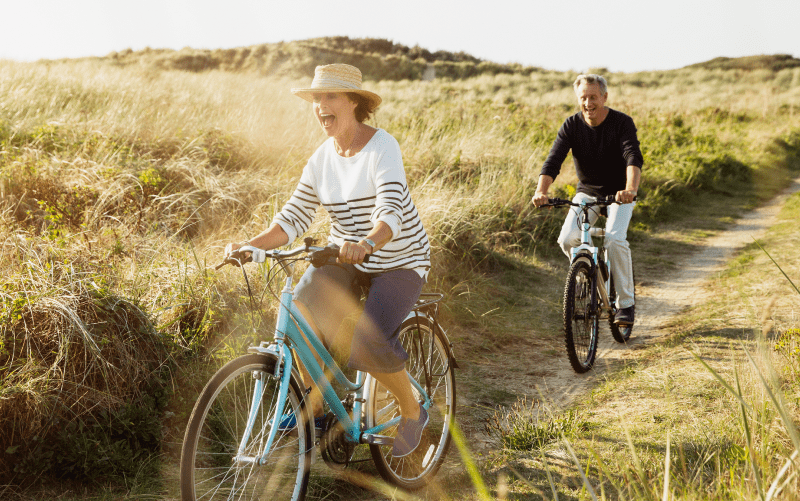Taking time off doesn't have to mean distant travel
By American Heart Association News

If you’re looking to squeeze in a vacation before the hectic fall schedule resumes, visions of exotic beaches or sightseeing abroad may come to mind. But enjoying time off work doesn’t have to mean distant travel or hefty spending.
A “staycation” may suit your lifestyle — and your budget. Day-trip getaways or exploring attractions in your own city can rejuvenate you. Choose something to do that’s meaningful to you during a staycation.
“A good life has balance — and recreation and leisure are essential to that,” said David Scott, a professor in the Department of Recreation, Park and Tourism Sciences at Texas A&M University, who suggests avoiding a passive, sedentary activity such as binge-viewing TV shows.
Besides the obvious appeal of being less expensive, a staycation offers several advantages over a traditional vacation: No packing, no booking flights or hotels, no arranging for pet care, and no airport security lines or travel delays.
Embark on the great outdoors
Heading to local or state parks or other green space gets you out into nature, where you can hike and enjoy the scenery. Stop, look and listen to what’s going on around you. Notice the birds and flowers and try to learn something new about the flora and fauna of your area.
Get the entire family involved, and pack a picnic.
Joining a naturalist club or a local chapter of the National Audubon Society may be a good fit for you if you’re avid about the outdoors or wildlife and want to spend your leisure time delving further into your passion.
Consider an outdoor exercise group. A yoga class in the park or an indoor class provides health benefits while fostering new social connections. If a group experience isn’t for you, grab an exercise mat, do some stretching on your own and enjoy the solitude.
Natural swimming holes or community swimming pools are also good close-to-home summer destinations.
Walk and bike
If you’re fortunate enough to live in a city with walking and biking trails, set out on foot or two wheels to rediscover your community. See things up close rather than from your car window. Walk or bike to a local farmers market for tasty seasonal fruits and vegetables.
Even if your town isn’t equipped with trails, try to walk to where you are going. Then, once your staycation ends, keep up those healthy efforts, and perhaps advocate for more walkable paths in your community.
“Walking can be integrated into your lifestyle very, very easily,” Scott said, noting that physically active people tend to have better physical and mental health(link opens in new window).
The American Heart Association recommends at least 30 minutes of moderate intensity physical activity per day at least five days a week to achieve good heart health and overall health.
Indoor fun
Museums provide an excellent opportunity to become a tourist in your own town. Time constraints may prevent you from visiting a museum during your normal routine, but a staycation opens up your schedule.
"Thinking about art or natural history museum exhibits activate your mind in a refreshing new way that doesn’t revolve around your work,” Scott said. “Anything where you’re going to grow your mind is a good idea.”
Reading serves as a mind-opening getaway, too. Relax in your backyard or another quiet place with a good book for a simple summer escape. Don’t forget about movies, plays and dining out or cooking at home with friends as enjoyable ways to spend leisure time.
Using your time wisely
If you are using vacation days to stay at home, find ways to make staycation time special and not filled with errands or chores. Consider putting away cellphones and other electronic devices that keep you tethered to work.
Scott points out that checking your phone messages and email may be necessary at times, but cutting the proverbial cord for even a few hours can eliminate “contaminated time,” meaning time that is frequently interrupted.
Whether it’s a vacation or a staycation, the key is fully relishing in leisure activities.
Those who regularly participate in a favorite pastime may want to spend their staycation indulging in the activity, which may be so intense or complex that it’s considered “serious leisure.” Researchers who study such pursuits say they can be as varied as long-distance running, rock climbing or singing in a barbershop quartet.
“The more people invest themselves in leisure activities, the more they get out of them,” Scott said. “They’re actively creating experiences for themselves.”
If you have questions or comments about this story, please email [email protected].




